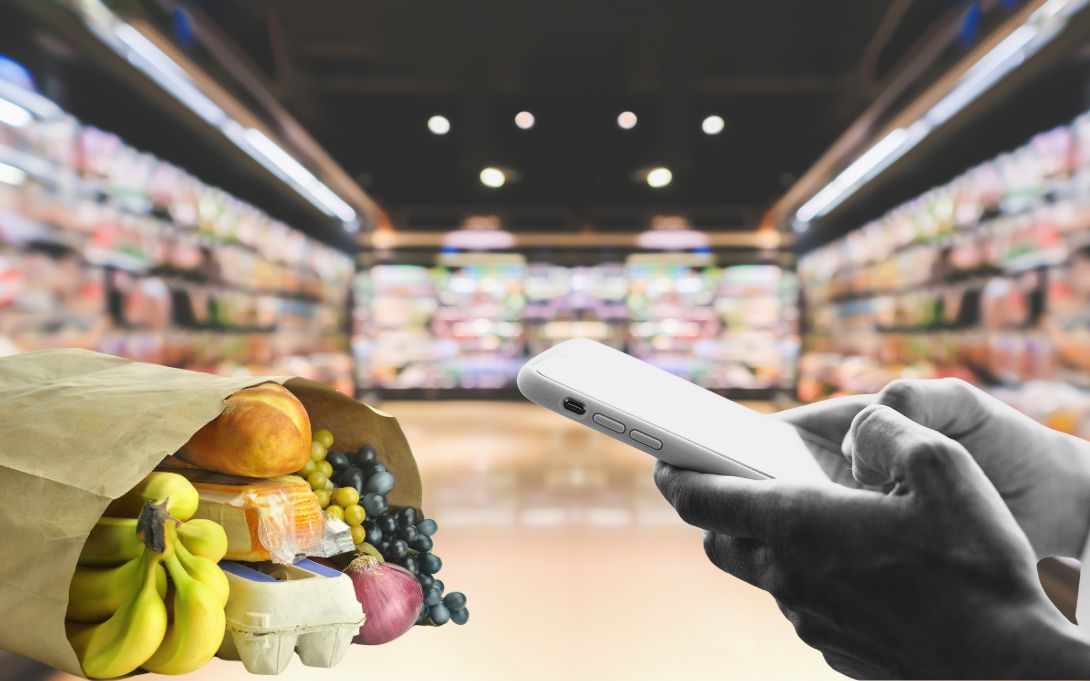
New research from the University of Michigan points to potential ways to leverage grocery delivery services to improve food access in Detroit, where 32% of residents live a mile or farther from a full-service grocery store.
The analysis from the U-M Center for Racial Justice and Poverty Solutions draws on a survey of a representative sample of Detroit residents about how often they use online grocery delivery services, what they see as the main benefits of those services, and why they may not use the services.
“More and more people are doing their grocery shopping online instead of in-person, and we wanted to understand if grocery delivery can help address food insecurity or if it’s mainly a perk for people who already have consistent access to food,” said Erykah Benson, a doctoral candidate in sociology and research fellow at the Center for Racial Justice who co-authored the research brief with Love Lundy, U-M graduate student in public policy.
“The analysis shows grocery delivery services are reducing barriers to food access—although there are limitations related to cost, difficulty using the shopping apps, and the general availability of delivery services for residents in the city.”
Overall, 39% of Detroiters said they have used online grocery delivery, with higher use among people who experience more transportation challenges and people who receive some form of food assistance. Many Detroiters with disabilities or major health challenges also mentioned that these services help them obtain the necessary food and essential products.
“When I was unable to shop because of illness, I often relied on deliveries,” said a 72-year-old survey respondent, who reported no transportation-related challenges.
Among Detroiters with more transportation-related challenges in getting from place to place, 51% have used online grocery delivery, compared to 40% of those with marginal transportation challenges and 36% of residents with no transportation challenges.
Among Detroiters receiving food assistance at the time of the survey in November and December 2023, 44% said they had used online grocery delivery, compared to 34% of those who had not received food assistance such as food stamps; assistance for women, infants and children; and pandemic-era food assistance for kids who lost access to school meals.
Most grocery stores in Detroit are independently owned rather than part of larger regional or national chains, and only seven grocery stores in Detroit accept food stamps for online grocery delivery.
Cost was the most frequently mentioned reason limiting the use of online grocery delivery, particularly among those facing more transportation challenges. Forty-five percent of all Detroiters, regardless of whether they have used online grocery delivery, mentioned that the cost of online grocery delivery limits their use of the services; this did not differ by household income. Also, 44% of all Detroiters mentioned trust in the quality of delivery services as a limiting reason.
Detroiters with more transportation-related challenges were significantly more likely to say that cost was a barrier to using online grocery delivery (69%) compared to those with fewer transportation challenges (50%) and those with no transportation challenges (37%).
“Policymakers could help by ensuring food stamps continue to be redeemable online and encouraging more businesses to participate in the online redemption program,” Lundy said. “Lowering the cost of grocery delivery could make the service more accessible to people with transportation challenges who would benefit most from having their groceries delivered.”
The researchers also noted opportunities for grocery stores to make their apps more user-friendly, as 23% of Detroiters with disabilities find delivery apps difficult to use, compared to 14% without disabilities.
“Online grocery delivery can enhance convenience, but its impact may be limited since many people prefer to shop in person and see it as a social activity,” Benson said.
